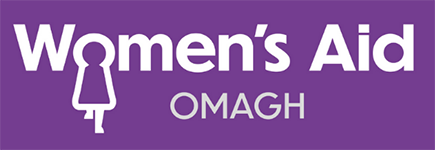Make a Safety Plan
A safety plan is a personalised, practical guide that can help reduce your risk of being hurt. It can also help you feel more in control during times of uncertainty or danger.
If you are experiencing domestic abuse, having a safety plan can help protect you and your children. A safety plan is a personalised, practical guide that can help reduce your risk of being hurt. It can also help you feel more in control during times of uncertainty or danger.
You are not alone. At Omagh Women’s Aid, we’re here to support you every step of the way.
What Is a Safety Plan?
A safety plan is a set of actions you can take to stay safe, whether you decide to stay, are planning to leave, or have already left an abusive relationship.
It includes ways to protect yourself physically, emotionally, and digitally.
Planning Ahead: Steps You Can Take
1. Keep Important Items Ready
Have a small bag packed and hidden in a safe place (or with someone you trust) that includes:
- A mobile phone and charger
- Some cash or bank card
- House/car keys
- Medication
- Copies of important documents: passport, birth certificates, National Insurance number, legal orders, benefit letters
- Clothes and essential items for you and your children
2. Know Your Safe Exits
Identify the safest routes out of your home in case you need to leave quickly. Avoid areas like kitchens or bathrooms where weapons may be stored or where escape could be difficult.
3. Create a Code Word
Choose a word or phrase you can use with children, family or friends to signal that you need help. Make sure they know what action to take if they hear it (e.g. call the police).
4. Teach Your Children
If age-appropriate, talk to your children about how to stay safe:
- Where they can go in an emergency
- How to call 999
- To never get in the middle of a violent incident
5. Use Technology Safely
- Regularly change passwords and PINs.
- Clear your browser history, especially if you are visiting support sites.
- Turn off location tracking on your phone if you’re concerned you might be followed.
What To Do In an Emergency
Call 999 Immediately
If you or your children are in danger, do not hesitate to call the police. If you cannot speak, use the Silent Solution:
- Dial 999
- Listen to the operator
Try to Get to a Safe Place
If possible, go to a neighbour, shop, GP surgery or a public area where you can get help.
Take your emergency bag if it’s safe to do so.
Lock Yourself in a Safe Room
If you cannot leave, try to get to a room with a door you can lock and a phone to call for help. Avoid the kitchen or bathroom.
Trust Your Instincts
You know your situation best. If something doesn’t feel safe, listen to your instincts and act as soon as it’s possible to do so.
After an Incident
- Contact Omagh Women’s Aid for support, advice or emergency accommodation.
- Write down what happened (if safe to do so) including dates and times.
- Seek medical attention for any injuries.
- Consider reporting the abuse to the police.
Need Support Now?
You are not alone. Speak to us in confidence:
Omagh Women’s Aid
Call: 028 8224 1414
24-hour Domestic and Sexual Abuse Helpline: 0808 802 1414
